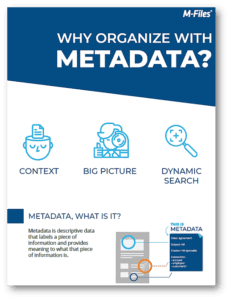Do you truly understand the value of metadata-driven document management and how it can propel your business? Metadata is specific information about a document that helps in the proper classification. When a document is classified correctly, it is easier to locate and use the data contained in it.

A metadata-driven document management system allows easy sorting, selecting, routing, storing, and controlling of documents. Using intelligent metadata, you can learn the document’s structure, workflows, origin and history, and what the document is about. Your company can gain a competitive edge with this information, and you can provide superior customer service and a higher quality of work to your customers.
Types of Metadata
Metadata creates structure so you can find and control the documents you need. This is especially important when you have many different applications that may need access to the same data. Properly structured documents are easy to find and use, no matter who needs them or where they need to be accessed. This type of easy access makes collaboration a breeze.
Here are a few types of metadata:
Classification: A document can have many different kinds of classifications, also called tags, depending on your company’s needs. Some common classifications include if the document is sensitive, for internal use only, or public.
Digital signatures: Keeping track of approvals makes compliance easier while keeping everyone accountable.
Fields: Fields include things like names, addresses, phone numbers, dates, and currencies.
Links: Links are used to connect related data types that may be filed separately. For example, invoices may be in one folder, while contracts are in another. If you need to access a contract to verify information in an invoice, having these documents linked will make the job easier.
Templates: Templates are used to automate business processes. A company can create a template with specific fields to automatically create documents.
Versions: Saving versions makes it easy to ensure that a document is up to date without losing previous versions that may be useful later on.
Other metadata types can include who created a document and when they created it, what department the document was created for, and what kind of information is contained in the document.
The Value of Metadata-Driven Document Management
M-Files provides metadata-driven document management solutions that can give a 270% ROI. Finding and using documents more easily can result in a 40% boost in productivity. Automated processes reduce errors, so work is completed more efficiently.
Work is also completed faster because collaboration is simplified with metadata, allowing information to be shared quickly yet securely, and that security makes compliance easy. No more worries about keeping up with regulatory requirements and penalties for making mistakes.
In a nutshell, metadata creates a better document management system that enhances your bottom line and propels your business. Ready to see how metadata can make your work smoother? Contact us today!





